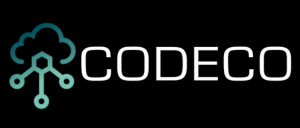Course Overview
This course offers an introduction to containerization and container orchestration. It focuses on modern tools and technologies like Docker and Kubernetes. It begins by explaining the concept of containerization, which is a method for packaging applications with their dependencies to ensure consistency across environments. Participants will learn about the advantages of containerization, such as portability, scalability, and resource efficiency, and how it compares to traditional virtualization methods. The course also addresses challenges in containerized environments, including security, networking, and persistent storage management.
The second half of the course delves into container orchestration, with a detailed exploration of Kubernetes. Participants will gain insights into Kubernetes’ architecture, including its control plane and worker nodes, as well as key concepts like pods, services, deployments, and scaling. The course also covers advanced features such as load balancing, auto-scaling, rolling updates, and monitoring tools like Prometheus and Grafana. It also introduces alternative orchestration platforms like Docker Swarm and Apache Mesos for comparison. By the end of the course, learners will gain insights on the basics of how to deploy, manage, and scale containerized applications in diverse environments, including hybrid and multi-cloud setups.
Target Audience
- Software Developers and Engineers, notably professionals looking to enhance their understanding of containerization and orchestration for application development and deployment.
- DevOps Practitioners, notably individuals aiming to streamline CI/CD pipelines, automate deployments, and manage scalable applications.
- IT Administrators and System Architects, including professionals responsible for designing, deploying, and maintaining containerized infrastructures in cloud or on-premises environments.
- Cloud Professionals, notably experts working with hybrid or multi-cloud setups who want to leverage Kubernetes for consistent application management across platforms.
- Students and Enthusiasts, such as learners interested in gaining foundational knowledge of Docker, Kubernetes, and container orchestration technologies.
Course Outline
- Introduction to Container Orchestration
- a. Overview of containerization
- b. Introduction to container orchestration
- c. Benefits of container orchestration
- d. Challenges in managing containerized applications
- Overview of Kubernetes
- a. Introduction to Kubernetes
- b. Components of Kubernetes
- c. Architecture of Kubernetes
- d. Kubernetes workflow
- Comparison of Kubernetes with other Container Orchestration Tools
- a. Overview of other container orchestration tools
- b. Feature comparison Kubernetes vs Docker Swarm
- c. Feature comparison Kubernetes vs Apache Mesos
- d. Feature comparison Kubernetes vs Amazon ECS
- Best Practices and Use Cases
- a. Common use cases for Kubernetes
- b. Success stories of organizations using Kubernetes
- c. Handling intermittent network connectivity
Course Materials will be available soon
